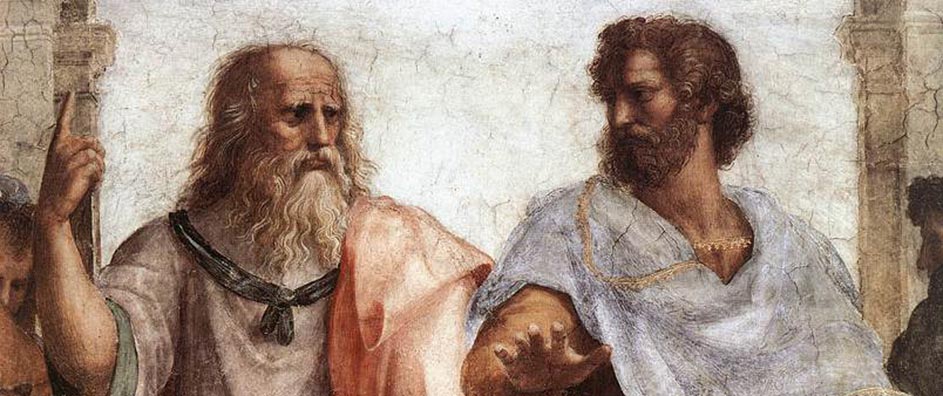The views expressed in our content reflect individual perspectives and do not represent the authoritative views of the Baha'i Faith.
Do you believe that (1) God is almighty, (2) God is perfectly good, and (3) evil exists? If so, we have a major problem.
That theological problem, called theodicy, arises for any philosophical or religious view that affirms those three propositions. Here’s the core issue: if evil exists, it seems either that God wants to obliterate evil and is not able to—and thus His almightiness is denied—or that God is able to obliterate evil but does not want to—and thus His goodness is denied.
If God is good, how can there be evil in His creation? If we do not believe in God, we need not trouble ourselves by searching for justice in physical reality. We may try to analyze the physical laws of the universe, to impose order in our society, or to be fair in our relationships with others—if we think it expedient to do so. But if we do not believe in a Divine Creator, we need not trouble ourselves looking for or expecting justice in creation as a whole.
Natural laws of cause and effect can adequately describe the cosmos and our relationship to it, and we can still manage to get along with our neighbors. Besides, such a view need not be dreary or fatalistic, but it must, by definition, accept the “purpose” of physical reality as solely that meaning which we invent or attribute to a reality that has no inherent purposes or values of its own.
But if we wish to ascribe to physical reality or to discern in creation and our participation in it a divine foundation or a morally-based rationale, we must assume that there is purpose latent within the system, however veiled or concealed it might be.
Indeed, we must presume that a divinely created reality is endowed with justice permeating everything that happens in physical reality, whether events be the most trivial aspects of our daily lives or the most encompassing laws that govern the structure and organization of the universe as a whole.
The thinkers and writers who have affirmed a belief in a divine Creator have derived the most powerful attempts to discover and describe the nature of justice in a world created by God. Consequently, if we ourselves wish to consider the possibility that creation is divine in origin, we would do well to review some of the human milestones in the attempts to vindicate God’s creation by explaining the appearance of evil and dysfunction within His creation.
Plato’s The Republic (ca. 378 B.C.)
Though one of the earliest recorded attempts to discover justice in the physical world, Plato’s dialogue The Republic has endured as one of the most influential and penetrating discussions of the subject. Basing his artful dialogue on the ideas of his teacher Socrates, Plato avoids much direct discussion of theology per se, though the character of Socrates in the dialogues does attribute the infusion of spiritual qualities into physical creation as the emanation of a single divine source, the Good. It is worth noting in this regard that, according to the Baha’i teachings, one source of Socrates’ monotheistic beliefs—for which Socrates was later executed—was his association with Jewish scholars:
He [Socrates] visited the Holy Land and studied with the prophets of Israel, acquiring principles of their philosophical teaching and a knowledge of their advanced arts and sciences. After his return to Greece he founded the system known as the unity of God. – Abdu’l-Baha, The Promulgation of Universal Peace, p. 405.
In another passage Abdu’l-Baha said that the basic evidence of the Judaic influence is found in Socrates’ concept of the unity of God and in his teaching about the immortality of the soul:
It is recorded in eastern histories that Socrates journeyed to Palestine and Syria and there, from men learned in the things of God, acquired certain spiritual truths; that when he returned to Greece, he promulgated two beliefs: one, the unity of God, and the other, the immortality of the soul after its separation from the body … – Selections from the Writings of Abdu’l-Baha, p. 54.
Baha’u’llah also praises the thinking and influence of Socrates, particularly his theory of “forms”—sometimes called the theory of “ideas”—the assertion that physical reality is but a reflection or expression of a metaphysical or spiritual reality:
He it is who perceived a unique, a tempered, and a pervasion nature in things, bearing the closest likeness to the human spirit, and he discovered this nature to be distinct from the substance of things in their refined form. He hath a special pronouncement on this weighty theme. – Tablets of Baha’u’llah, pp. 146-147.
While Baha’u’llah may have been alluding to any number of Plato’s dialogues that discuss the theory of ideas, it is likely that he was referring to The Republic, the avowed objective of which is to define justice. In the course of Socrates’ discussion of the nature of justice in the individual, the discussion rapidly becomes an explicit analysis of how we can employ physical experience to learn spiritual lessons.
The work begins with participants in a discussion about the merits of some traditional views of justice. The character Socrates then suggests that the best method for understanding justice in an individual might be first to determine how justice might work in “larger proportions,” in a just society or state. Thus it is that the participants in the dialogue begin devising a just government—a republic.
The resulting discussion provides a fruitful series of analogies—the individual compared to a state and, by implication, the state compared to physical reality itself. In effect, the search for justice goes far beyond any explicit political doctrine and tackles the essential issue of how physical reality can be perceived as having spiritual significance.
After lengthy debate and consideration of what creates justice in a political structure, the participants in the dialogue conclude that the guiding principle of a just state is the principle of propriety—each thing doing that for which it is especially well suited or created. Having determined the various components of this structure and what function each person should perform in the operation of the community, the participants conclude that everyone in this republic should work in harmony for the mutual benefit of the whole.
The rulers in the republic should naturally be the wisest and most magnanimous of the citizenry, altruistic “philosopher-kings” who will make the major governmental decisions. The military, the most physically able, should function to protect the state. The poets should devise allegorized myths and parables to explain abstract principles of virtue to the unlearned masses. The craftsmen and artisans should make employ their tools to fashion buildings, furniture, and so on. The farmers should produce and supply the food, and the shopkeepers should distribute the goods.
The careful detail with which Plato’s Socrates builds this state, this republic, or aristocracy (literally a rule by the “best”), has led many to conclude that The Republic is primarily a political treatise. Plato has even been vehemently censured by some critics for the rigidity and, as they perceive it, the totalitarian implications of his political exercise. These interpretations mistakenly take the work at face value and totally miss its allegorical intent, which is to define justice in the individual.
You May Also Like
Comments

















I don't accept the third axiom. This seems to offend many people. I find it odd that even those skeptical of the existence of a God grow offended and outraged at the suggestion that evil is not a thing that exists.
I don't really see the point of this article, for me it doesn't answer the question it poses.. Is it just me missing the point?